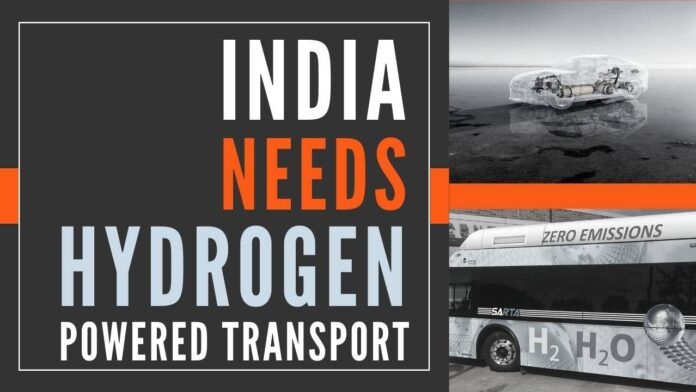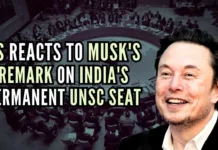
Across the Globe, Elon Musk has gained maximum attention due to his companies like SpaceX and Tesla. Tesla is an electric car manufacturing company based out of the US and SpaceX is leading the private space market. Today, Tesla’s market cap is worth more than the combined market cap of the top 5 car makers in the world. No doubt Tesla has emerged as a champion in a short period however the future looks bleak as it is similar to the case of Nokia mobile phones which emerged and dominated the cellular market in the 2000s.
Does India or the world need to go for EVs or Hydrogen?
Before we get to the answer, we need to understand why electric vehicles came in the first place. Electric vehicles were found to be the quick fix to the air pollution problem which occurred due to the large-scale usage of IC (Internal Combustion) Engines that were using fossil fuels.
These IC Engines predominantly use liquid fuel/ propellants except for Space travel (Rockets use solid propellants). Due to the widespread usage of IC Engines (which use fossil fuels), CO2 levels shot up thus leading to Global warming. To arrest this global phenomenon, one of the methods suggested was to move the transport facility to electric vehicles.
The electric vehicle setup is pretty simple when compared to an IC engine, all it needs is a large battery to take care of the mechanics, maneuver, electronics, and air conditioning.
These batteries are made of Lithium and Lithium is available in large supplies. With ease and advantages, making EVs acted as quick fixes to these problems.
The drawback however is that EVs have emerged on a large scale without having a futuristic approach to the problem of air pollution with the manufacturers having branded it as “Zero Emission” to sell their quick-fix product.
The problem with the EVs is that it would still mean the usage of fossil fuels through indirect means as the source of electricity for all these vehicles is still majorly coal-fired power plants.
The ‘zero emission’ branding will be true only if the origin of the source of electric power is also a renewable energy source such as Solar, Wind, Hydel Power, etc. Adding EVs in large numbers would mean nothing but bringing in or carrying a large electric appliance with oneself.
There are other challenges to these EVs such as Cars and Bikes, it needs to be charged for every 250-500 Kms (for cars) and <100kms for bikes because the battery capacity range is 250-500 Kms which ideally means long-distance travel using cars would be taking more time than usual. It is suitable only for urban transport, not long-distance travel.
The problem with EVs will be even more as the battery life is still in question, if the battery life is <5 years it would mean that the battery needs to be changed which is as equal as changing the engine of a car (which currently has a life span over 10 years).
So far the EVs are being designed only for bikes and cars in large numbers but there are other kinds of transport vehicles and heavy machinery which are also widely used but run on IC engines e.g. Airplanes, Ships, Lorries, Buses, and Trucks. These are heavy vehicles requiring long-distance travel so in these cases, EVs are not a viable option.
Given all these disadvantages and the non-futuristic approach that EV manufacturers are headed for, the best sustainable long-term and a forward-thinking alternative is Hydrogen fuel.
Hydrogen is a highly combustible substance and its existence is much more than Lithium. Hydrogen does not need to be mined liked Lithium but can be extracted from very commonly available substances like water. Water as a molecule has 2 atoms of Hydrogen and 1 atom of Oxygen. Electrolysis of water can be done to split Hydrogen from the molecule.
The advantage of Hydrogen is that it can act as a fuel in 2 ways, i.e. Hydrogen as a liquid/ gas which can fuel and drive a modified IC Engine, and Hydrogen as a fuel cell technology.
A fuel cell technology is nothing but a Hydrogen-Powered electric vehicle in which energy is derived from stored molecules through an electrochemical reaction.
The electric energy generated powers a battery which thus runs the vehicle. The power generated is limitless as long as there is a supply of Hydrogen.
Hydrogen as a fuel solves almost all the problems that we as a society face with regards to Air pollution and Global warming.
Here are the advantages of using Hydrogen as fuel:
It can act as a fuel for all types of transport vehicles, not just bikes, and cars but also trains, airplanes, trucks, etc. There is no need for charging stations & there is no specific range.
Already there is an existing infrastructure i.e. Petrol pumps and gas stations, this can be leveraged for distribution. The EVs don’t have an infrastructure, they are being developed from scratch as charging stations. These charging stations remind us of the telephone booths that existed and are now nowhere to be present.
Except for cars and bikes, all the companies which are into aircraft manufacture and shipbuilding are going for Hydrogen as fuel because the space required for batteries and the volume taken up for large vehicles increases substantially. Airbus has stated that it will bring Hydrogen-powered aircraft into the market by 2030. Alstom has even built a Hydrogen-powered train and even tested it.
If Hydrogen is produced on a large scale via Industries (through renewable sources of energy), the net emission end to end, right from the manufacture to the usage of Hydrogen-powered vehicles is Zero, which is not the case with EVs because there is no guarantee that every vehicle is powered by renewable energy.
Reasons why India needs to go Hydrogen:
India’s transportation needs are mostly skewed towards mass transport consisting of heavy vehicles (buses and trains) even today, and with its growing population adding EVs would mean more power consumption and this is not a guarantee that it will be powered by renewable sources thus the myth of “zero-emission” gets busted so the best alternative is Hydrogen-powered mass transport systems.
India’s maximum passenger movement even today is via trains and they are all either electric or diesel engines and both ways they are powered by fossil fuels and not renewable energy sources. A futuristic sustainable approach would be to make Indian Railways fully running on Hydrogen-powered trains.
Yes, there are challenges to its usage due to its highly combustible nature but this hysteria by some people needs to be purged from society to see a sustainable innovation in the society. Convenience, for now, would be EVs but they are not sustainable in the long run.
Right now the EVs will dominate the market especially in the light utility vehicle (LUVs) and bikes in the urban transport sector as there is a craze all over but it does not solve the larger problem of Zero Emission and a sustainable method for transport.
Note:
1. Text in Blue points to additional data on the topic.
2. The views expressed here are those of the author and do not necessarily represent or reflect the views of PGurus.
- Bharat must bring back the world’s renowned empire builders – The Zoroastrians (Parsis) deserve a permanent global Indian citizenship & permanent representation in the Lok Sabha - June 23, 2022
- Hindu State Part 3: The Hindu State is possible with the synergy of 4 wings of Hindutva – Street Hindutva, Intellectual Hindutva, Tech Hindutva, and Virat Hindutva on stand-by - May 1, 2022
- The Hindu Vivaaha: A prosperity enhancing ceremony under siege, why educated Hindu youth should understand the financial & economic advantage of getting married young - February 18, 2022











[…] scheme is a ‘sales value linked’ scheme, applicable on Battery Electric Vehicles and Hydrogen Fuel Cell Vehicles of all segments, the Minister said. The Component Champion Incentive scheme is a ‘sales value […]